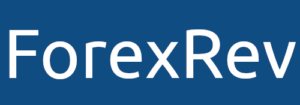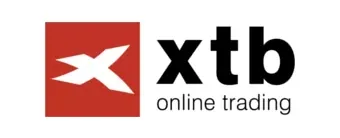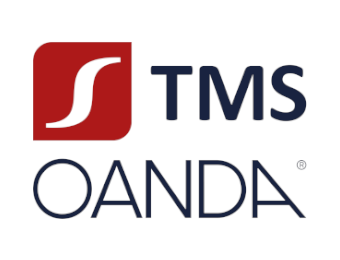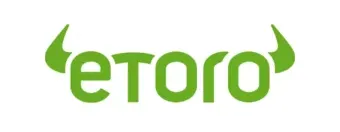Best Trading Platforms: The Ultimate Guide 2024

Introduction to the World of Trading Platforms
Nowadays, trading platforms are the foundation of the online investing and trading world. These are specialized software programs or web/mobile investing apps that allow investors and traders to buy and sell financial instruments. From stocks and bonds, to currencies (Forex), to cryptocurrencies and commodities, trading platforms offer access to a wide range of financial markets.
A quick overview of trading platforms
- IC Markets offers low spreads and commissions, fast order execution , and advanced analytical and trading tools, ideal for scalpers and day traders.
- XTB, known for its intuitive xStation 5 platform, offers advanced technical and fundamental analysis, as well as excellent educational and client support.
- TMS Brokers provides access to a variety of markets and the easy-to-use TMS Trader platform , enhanced with a mobile trading app and extensive educational resources.
- eToro is a pioneer in social trading , offering the ability to copy trades of experienced traders and a wide range of instruments, including thematic CopyPortfolios.
- Bybit specializes in cryptocurrency trading , offering advanced trading tools, leveraged trading, and a high level of security and support for cryptocurrency investors.
The role of trading platforms in today’s trading
Trading platforms have revolutionized the way investors and traders make decisions. With access to real-time market data, advanced analytical tools, and automation, traders can make faster and more informed decisions. These platforms also offer a variety of features, such as technical analysis, algorithmic trading, and risk management tools.
The trading platform market is incredibly diverse, offering both simple, intuitive systems for beginner investors and advanced platforms for experienced traders. Some platforms focus on specific instruments or trading styles, while others offer a wide range of tools and markets.
Trading Platforms and Online Brokers
Trading platforms are often closely linked to online brokers . These brokers provide infrastructure and support for the platforms, enabling access to financial markets. Choosing the right broker is crucial, as it influences available tools, trading fees, and the quality of order execution.
Worth knowing : In other words, a broker is a service company/brokerage house that offers access to markets and enables trading. They do this through a trading platform, which is why brokers are often referred to as trading platforms. In practice, a single broker may offer several trading platforms to choose from (e.g., MetaTrader 4 and MetaTrader 5). Brokers often also have their own proprietary platforms (such as xStation from XTB broker). However, if we want to trade with a broker or cryptocurrency exchange (like Bybit), we will certainly use their proprietary trading platforms, which are usually very technologically advanced. In the following sections, we will often refer to brokers as platforms. However, you will find a chapter entirely devoted to platforms as tools (software).
A good trading platform should not only offer a wide range of instruments and effective trading tools, but also be intuitive and user-friendly. Low transaction fees, solid customer support, and a high level of security are also important. The platform should also allow for personalization and adaptation to the individual needs of each trader.
The role of brokers in the world of trading
Online brokers have played a key role in the internet trading revolution. These are intermediaries that facilitate the buying and selling of various financial instruments through their trading platforms. Modern brokers differ from traditional brokerages by offering access to global financial markets from a computer or mobile device. Their platforms provide traders with the tools they need to analyze markets, execute trades, manage risk, and monitor their investment portfolios.
Key Features of Good Brokerage Platforms
- Access to diverse markets: A good brokerage platform should offer a wide range of trading instruments, including stocks, bonds, foreign exchange (Forex) , commodities, and cryptocurrencies. Access to diverse markets allows traders to diversify their investment portfolios.
- Analytical and Trading Tools: Advanced analytical tools such as charting, technical indicators, fundamental analysis, and technical analysis are essential for effective trading. Platforms should also offer trading automation features such as algorithmic trading and trading robots.
- Usability and Accessibility: A brokerage platform should be intuitive and easy to use for both beginners and experienced traders. Mobility and platform accessibility across various devices (computers, smartphones, tablets) are also important to enable trading anywhere, anytime.
- Security and Regulation: The security of client funds and adherence to financial regulations are fundamental to a good broker. Licensing by reputable regulatory bodies is crucial to building trust and investor protection.
- Customer Support and Education: Access to effective customer support and extensive educational resources is essential. Brokers should offer training materials, webinars, courses, and guides to help traders develop their trading skills.
- Fee Transparency: Clear and transparent disclosure of all fees, including spreads, commissions, and position financing fees, is essential. Competitive pricing and low transaction fees can significantly impact trading profitability.
Online brokers and their trading platforms have become key players in the world of investing. They provide access to global financial markets, advanced trading and analytical tools, and essential support and security for traders. Choosing the right brokerage platform is therefore a critical element in achieving trading success. In the following sections, we’ll analyze specific brokerage platforms, their offerings, and the unique features that make them attractive to different types of investors. You can also check out our broker ranking here .
An overview of leading brokers and their trading platforms
In this chapter, we focus on analyzing leading brokers and their trading platforms , which are key in the world of investing. We will examine the specifics and key features of platforms such as IC Markets, XTB, TMS Brokers, eToro, and Bybit, assessing their functionality, analytical tools, and services offered. Our review aims to provide a clear picture of the capabilities these platforms offer, helping investors choose the right broker for their individual trading needs.
1. IC Markets (icmarkets.com)
Trading Services and Tools:
- Access to Markets: IC Markets provides access to a wide range of markets, including Forex, Indices, Commodities, Stocks, Bonds, and Cryptocurrencies.
- Trading Platforms: The broker offers popular platforms such as MetaTrader 4, MetaTrader 5, and cTrader. These platforms are renowned for their advanced technical analysis capabilities and support for algorithmic trading.
- Low Spreads and Commissions: IC Markets is known for its competitive spreads and low commissions, which is especially beneficial for traders using scalping and day trading strategies.
- Order Execution: The broker is renowned for its fast and reliable order execution, which is crucial in dynamically changing market conditions.
- Educational and Analytical Tools: IC Markets offers a wealth of educational resources, including webinars, tutorials, and market analysis, that are invaluable to traders of all skill levels.
- Go to IC Markets
2. XTB (xtb.pl)
Platform Features and Benefits:
- xStation 5: XTB offers its flagship trading platform – xStation 5, appreciated for its intuitive interface, fast order execution and advanced analytical tools.
- Technical and Fundamental Analysis: The xStation 5 platform provides access to detailed charts, technical indicators, and fundamental analysis to help traders make informed investment decisions.
- Education and Support: XTB places great emphasis on trader education, offering a wide range of educational materials, online courses and regular webinars led by experienced traders.
- Personalization Features: The platform allows for the personalization of settings and charts, allowing traders to tailor the trading environment to their own preferences and strategies.
- Customer Support: XTB stands out for its high-quality customer support, available in many languages, which is especially important for traders in the international market.
- Go to XTB
3. TMS Brokers (tms.pl)
Specificity of the Platform and Its Functionality:
- Versatility of Instruments: TMS Brokers offers access to a variety of markets, including Forex, stocks, indices, as well as commodities and cryptocurrencies.
- TMS Trader: TMS Brokers’ main platform, TMS Trader, stands out for its ease of use and fast and intuitive interface, making it suitable for both beginners and experienced traders.
- Analysis and Trading Tools: The platform provides advanced analytical tools, including access to charts, technical analysis and indicators, enabling effective trading strategies.
- Mobile App: TMS Brokers also offers a mobile trading app, allowing you to trade and monitor the markets on the go.
- Educational Resources: The broker places a strong emphasis on education, offering training materials, market analysis and support, which is crucial to developing clients’ trading skills.
- Go to TMS
4. eToro (etoro.com)
Unique Platform Features:
- Social Trading: eToro is a pioneer in social trading, allowing investors to copy the trades of experienced traders. This feature makes the platform attractive to those just starting out in trading.
- Wide Range of Instruments: eToro offers trading in a variety of instruments, including stocks, currencies, commodities, ETFs, and cryptocurrencies.
- Intuitive Interface: The platform is known for its user-friendly and easy-to-use interface, making it accessible to traders of all experience levels.
- Thematic Investing: eToro also offers investments in so-called CopyPortfolios, which are thematic group investments based on strategies or market sectors.
- Go to eToro
- eToro is a multi-asset investment platform. The value of your investments may go up or down. Your capital is at risk.
5. Bybit (bybit.com)
Cryptocurrency Trading Expertise and Platform Features:
- Cryptocurrency Focus: Bybit is a platform specializing in cryptocurrency trading, offering access to popular digital currencies like Bitcoin, Ethereum, and various altcoins.
- Leverage Trading: The platform offers leveraged trading, which allows you to increase your potential profit, but also involves greater risk.
- Advanced Trading Tools: Bybit provides traders with advanced tools such as technical analysis, real-time charts, and a variety of order types.
- Security and Protection: Strong emphasis on the security and protection of customer funds, including advanced security mechanisms and a risk management system.
- Support for Cryptocurrency Traders: Bybit also offers educational and analytical support specifically aimed at cryptocurrency investors, both beginners and experienced traders.
- Go to Bybit
Each of these brokers offers a unique set of features and specializations to suit different needs and trading styles.
Trading Platforms as Tools
Choosing the right trading platform is a key element of every investor’s trading strategy. A well-chosen platform should not only suit individual needs and trading style but also provide the necessary tools for effective market analysis and trade execution. In this chapter, we will discuss the main trading platforms used by traders worldwide, highlighting their features and popularity.
Overview of the Main Tool Platforms
MetaTrader 4 (MT4)
- Features and Popularity: MetaTrader 4 is considered the standard trading platform, valued for its stability, versatility, and extensive set of analytical tools. The platform offers advanced charting, technical indicators, and support for algorithmic trading, making it popular with both beginners and experienced traders.
- Availability: MT4 is widely available with many brokers worldwide, allowing you to easily connect to your preferred trading provider.
MetaTrader 5 (MT5)
- Advanced Features: MT5, the successor to MT4, offers expanded capabilities, including access to additional markets like stocks and commodities. It includes improved analytical tools, more indicators, and better algorithmic trading capabilities.
- Comparison with MT4: Although MT5 offers more features, MT4 still remains more popular due to its simplicity and strong support from the trading community.
cTrader
- Advantages for Advanced Trading: cTrader is the platform of choice for traders seeking advanced trading and analytical features. It offers fast order execution, leveled market depth charts, and advanced technical analysis tools.
- Interface and Personalization: The platform is known for its intuitive user interface and extensive customization options, which attracts advanced traders who value flexibility and precision.
xStation
- Features and Integration with XTB Offer: xStation, created by XTB, is an innovative trading platform offering fast order execution, advanced analytical tools and unique features such as trader performance statistics and market sentiment analysis.
- User and Accessibility: The platform is valued for its ease of use, making it accessible to traders of all skill levels, and its tight integration with XTB provides traders with access to a wide range of markets and brokerage services.
Understanding and selecting the right platform tool is crucial for effective trading. Each of the platforms discussed—MT4, MT5, cTrader, and xStation—offers unique features and tools that can be tailored to individual trader needs and preferences. Choosing the right platform should be based on both personal requirements and the specific markets being traded, ensuring maximum trading efficiency and comfort.
Comparison and selection of trading platforms
Key selection criteria
- Fees (broker): Transaction fees, commissions, spreads, and other trading-related costs directly impact investment profitability. Comparing fees across platforms is crucial to choosing the most cost-effective option.
- Tools (platform): The availability of advanced analytical tools, such as technical indicators, fundamental analysis tools, charts and economic calendars, is essential for effective trading.
- Customer Support (Broker): The quality of customer support, including the availability of technical support, educational materials, and troubleshooting resources, is important to ensure a smooth trading experience.
Innovations and trends in trading platforms
- Automation and AI: How artificial intelligence and automation are changing the way traders analyze markets and make investment decisions.
- User Interfaces: Developing intuitive and user-centric interfaces that make trading easier for a wider group of users.
- Integrating with new markets: How platforms are adapting to the growing interest in new asset classes such as cryptocurrencies and digital tokens.
- Personalization and Behavioral Analysis: Developing tools to personalize the trading experience and using behavioral analysis to better understand trader decisions.
- Security and Regulation: Future challenges related to ensuring transaction security and adapting to changing regulatory frameworks.
Conclusions
Choosing the right trading platform is a personal decision and depends on each trader’s individual needs and preferences. It’s important to carefully consider all available options, taking into account your trading style, analytical requirements, and experience level. Given the constant development of technology and changing market trends, traders should also be willing to adapt and evolve their strategies.
We hope this article has provided valuable guidance and facilitated the decision-making process, helping traders find the trading platform that best meets their needs and helps them achieve their investment goals.






